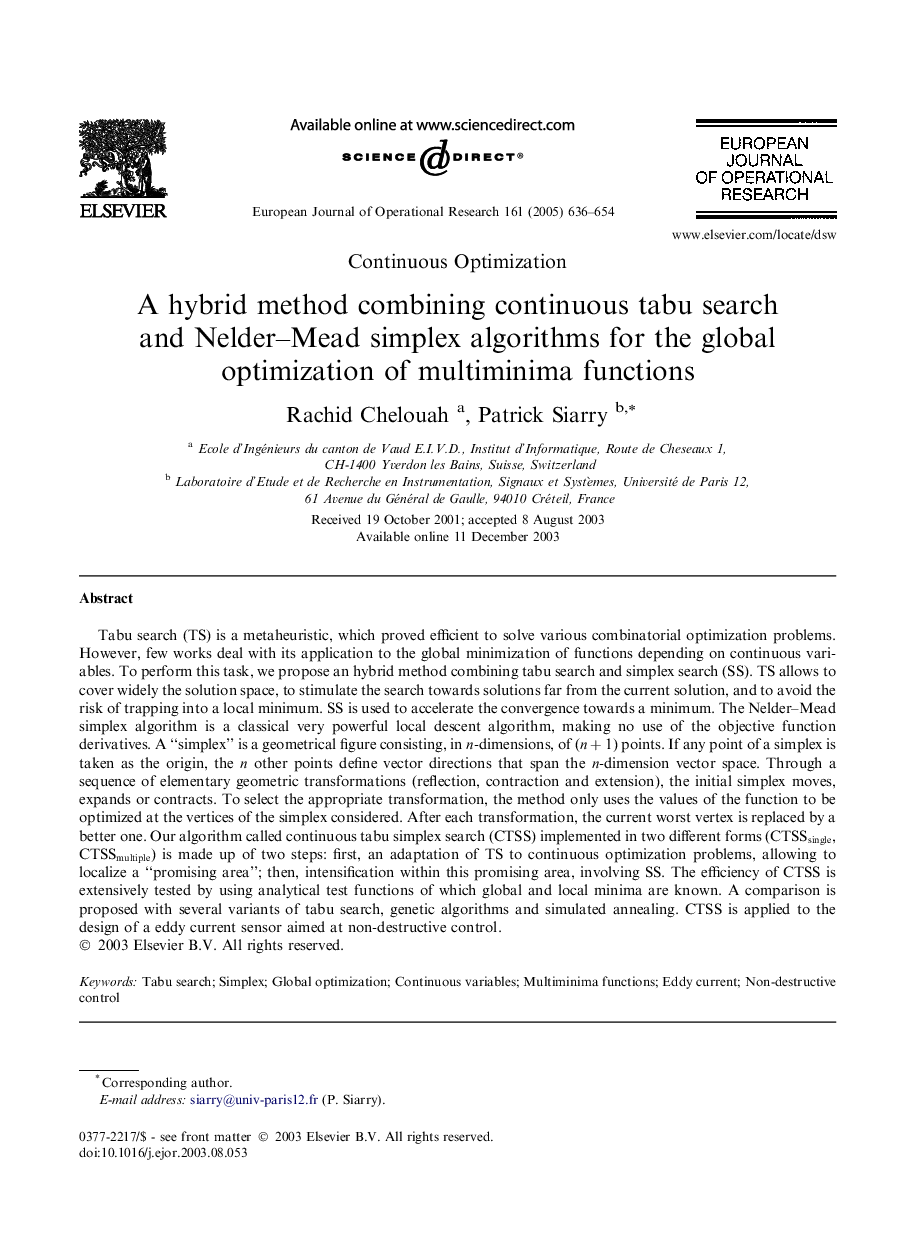| Article ID | Journal | Published Year | Pages | File Type |
|---|---|---|---|---|
| 9663988 | European Journal of Operational Research | 2005 | 19 Pages |
Abstract
Tabu search (TS) is a metaheuristic, which proved efficient to solve various combinatorial optimization problems. However, few works deal with its application to the global minimization of functions depending on continuous variables. To perform this task, we propose an hybrid method combining tabu search and simplex search (SS). TS allows to cover widely the solution space, to stimulate the search towards solutions far from the current solution, and to avoid the risk of trapping into a local minimum. SS is used to accelerate the convergence towards a minimum. The Nelder-Mead simplex algorithm is a classical very powerful local descent algorithm, making no use of the objective function derivatives. A “simplex” is a geometrical figure consisting, in n-dimensions, of (n+1) points. If any point of a simplex is taken as the origin, the n other points define vector directions that span the n-dimension vector space. Through a sequence of elementary geometric transformations (reflection, contraction and extension), the initial simplex moves, expands or contracts. To select the appropriate transformation, the method only uses the values of the function to be optimized at the vertices of the simplex considered. After each transformation, the current worst vertex is replaced by a better one. Our algorithm called continuous tabu simplex search (CTSS) implemented in two different forms (CTSSsingle, CTSSmultiple) is made up of two steps: first, an adaptation of TS to continuous optimization problems, allowing to localize a “promising area”; then, intensification within this promising area, involving SS. The efficiency of CTSS is extensively tested by using analytical test functions of which global and local minima are known. A comparison is proposed with several variants of tabu search, genetic algorithms and simulated annealing. CTSS is applied to the design of a eddy current sensor aimed at non-destructive control.
Keywords
Related Topics
Physical Sciences and Engineering
Computer Science
Computer Science (General)
Authors
Rachid Chelouah, Patrick Siarry,
